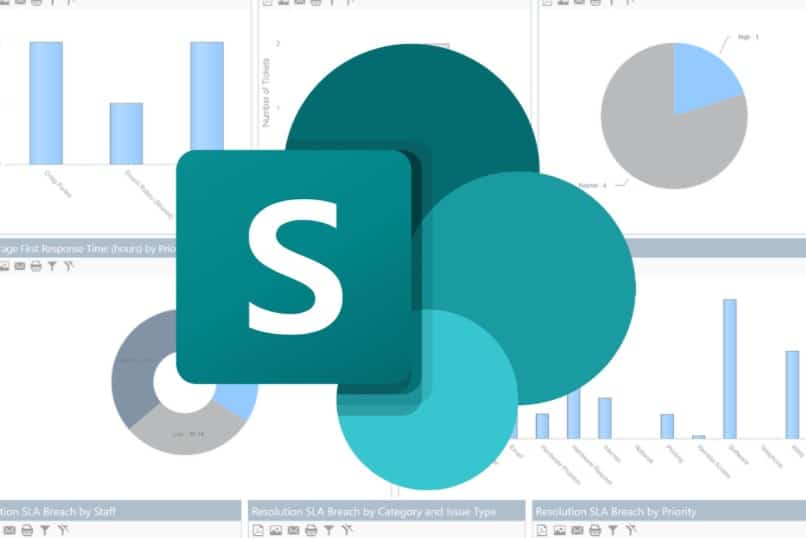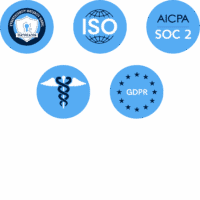W hen your organization already uses Microsoft SharePoint, the idea of building your own helpdesk directly within it can be appealing. After all, SharePoint is flexible, secure, and already integrated into your Microsoft 365 environment. For IT teams, HR departments, or other internal service providers, setting up a SharePoint helpdesk seems like a natural next step. But while it can be done, building a fully functional, scalable helpdesk in SharePoint isn’t without its challenges.
hen your organization already uses Microsoft SharePoint, the idea of building your own helpdesk directly within it can be appealing. After all, SharePoint is flexible, secure, and already integrated into your Microsoft 365 environment. For IT teams, HR departments, or other internal service providers, setting up a SharePoint helpdesk seems like a natural next step. But while it can be done, building a fully functional, scalable helpdesk in SharePoint isn’t without its challenges.
Let’s explore the process, the pitfalls, and why using a purpose-built solution like NITRO Help Desk might ultimately save time, money, and frustration.
Can You Build a Helpdesk in SharePoint?
Yes, you can build a helpdesk in SharePoint. SharePoint offers the basic building blocks you need:
-
Lists to track tickets
-
Workflows to automate notifications or escalations
-
Forms for user submissions
-
Permissions to manage access
Using these tools, organizations can create a rudimentary ticketing system to capture and manage requests. But this DIY approach requires significant customization, and the real work comes in making the system actually usable for both technicians and end users. Maintenance can also become a challenge if the original architect moves on from the company.
Common Challenges of Building Your Own Helpdesk in SharePoint
-
Limited Workflow Complexity
SharePoint Designer or Power Automate can create basic flows, but more complex scenarios—like SLAs, approvals, multi-step routing, or conditional logic—require advanced configuration or custom development. -
Lack of Advanced Features
Features like knowledge base integration, email-to-ticket conversion, automation rules, reporting dashboards, and technician workload balancing don’t come out of the box. You’ll either need to build them or go without. -
Scalability and Maintenance
As your ticket volume grows, performance can become an issue. Maintaining your homegrown solution (bug fixes, security updates, UX improvements) becomes an ongoing burden. -
User Experience and Adoption
A clunky or confusing interface discourages user adoption. Building a polished, responsive, and mobile-friendly UI in SharePoint takes more effort than many teams anticipate. -
Resource Drain
Designing, building, and maintaining a custom helpdesk takes time from IT or development staff—time that could be spent on strategic initiatives instead.
Benefits of Running a Helpdesk in SharePoint
Despite the challenges, there are major advantages to using SharePoint as your helpdesk platform:
-
Integration with Microsoft 365 – You’re already using SharePoint, Outlook, and Teams. Keeping your helpdesk within the Microsoft ecosystem simplifies workflows and improves collaboration.
-
Security and Permissions – Leverage existing SharePoint permissions and authentication for secure access.
-
Cost Control – No need for a third-party SaaS platform when you can use your existing infrastructure.
-
Customization – SharePoint offers a lot of flexibility to tailor the helpdesk to your organization’s needs.
So how do you get all the benefits—without the DIY headaches?
NITRO Help Desk: The Best of Both Worlds
Rather than starting from scratch, organizations are increasingly turning to NITRO Help Desk—a fully featured helpdesk that runs natively in SharePoint and Microsoft 365.
It gives you everything a modern helpdesk needs:
-
Intuitive technician and end-user interfaces
-
AI-powered ticketing and response suggestions
-
Email-to-ticket automation
-
Built-in reporting and dashboards
-
Customizable workflows with advanced logic
-
Knowledge base integration
-
Mobile-friendly, responsive design
Best of all, it installs into your existing SharePoint environment—so you keep the integration and security benefits without reinventing the wheel.
Final Thoughts
Yes, you can build a SharePoint helpdesk from scratch. But should you? Between the development overhead, limited features, and maintenance burden, many organizations find that starting from zero costs more than it saves.
NITRO Help Desk offers a better way: the flexibility and control of a SharePoint-native solution, with all the functionality you’d expect from a modern service desk platform.
Are you ready to simplify support while staying within the Microsoft 365 environment?


